



The University of Ghana, with the support of Transforming Teacher Education and Learning (T-TEL), has organised a two-day workshop for its six affiliated Colleges of Education at the Mensvic Grand Hotel in Accra. The workshop which targeted tutors from the Colleges focused on teaching Year I, semester I courses as well as other information that will facilitate the roll-out of the new four-year B.Ed programme in the Colleges in October 2019.
The Co-ordinator for the the B.Ed programme, Dr. Paul Butakor who was the Moderator announced that the workshop would acquaint the tutors with the unique features of the Bachelor of Education (B.Ed.) programme. It would also equip participants with the model of progression for the curriculum and expectations for year 1 semester 1. It would further address equity, inclusivity and cross-cutting issues. In addition, the workshop would serve as a platform for participants to be able to understand the use of course manuals for teaching the 4-year B.Ed curriculum in alignment with the National Teachers Standards (NTS) and the National Teacher Education Curriculum Framework (NTECF).
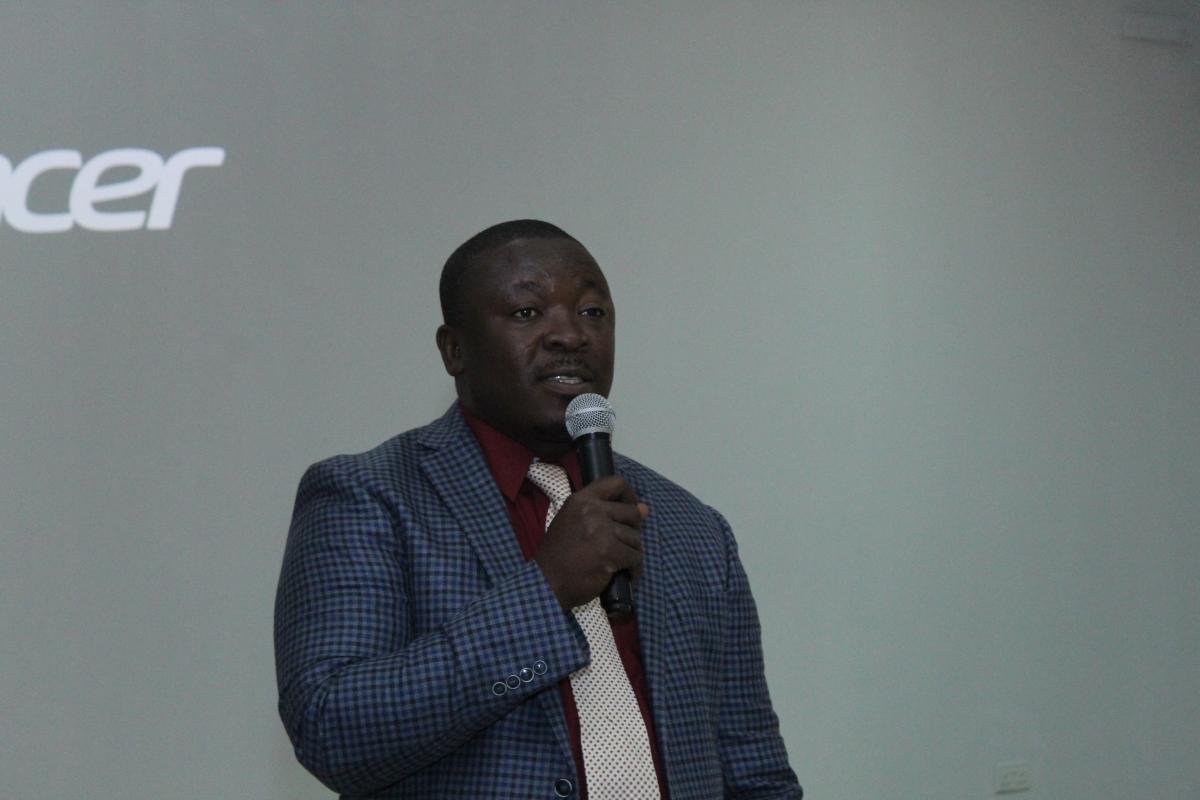
Dr. Paul Butakor, the Co-ordinator for the B.Ed programme delivering the opening address
In an interactive session with participants, the Acting Dean of the School of Education and Leadership and the Programme Lead at the University, Professor Jonathan Fletcher, who was the main Facilitator for the workshop, stated that, “teachers are the most powerful people we have across the world.”
Professor Fletcher admonished tutors not to position themselves as “all-knowing” during class activities, but rather see teaching as a two-way flow of knowledge. Again, he advised the tutors to extend the existing three-year diploma courses to a four-year degree programme to enhance the capacities of student-teachers and also enable them to meet the required standards in teaching in Ghanaian Schools. This, according to Professor Fletcher, will also equip them with the requisite skills to attend to one of the major problems with equity and inclusivity.
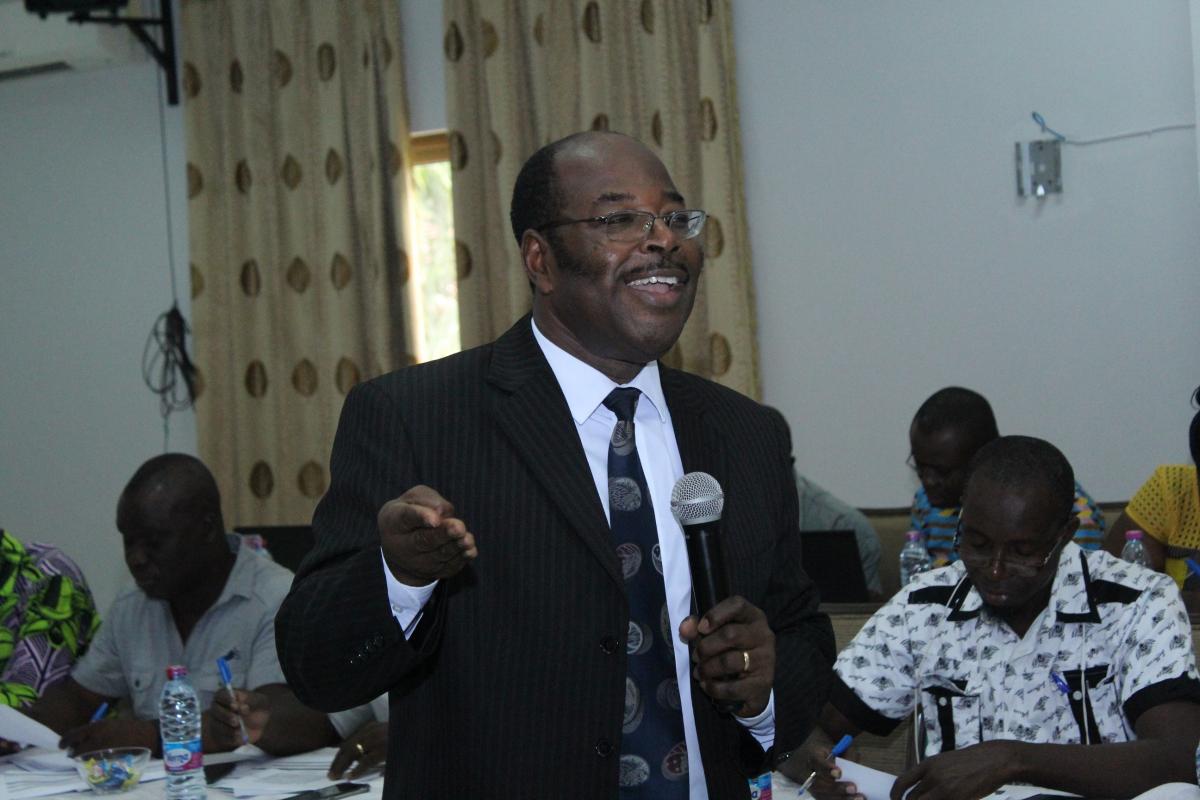
Professor Fletcher interacting with participants
The Acting Dean also dealt with Pedagogical Content Knowledge (PCK) in order to help the tutors to understand the subject matter in teaching as well as the content of teaching. He pointed out that, this will guide participants to enhance teaching with illustrations in order to maximise impact. The PCK approach will also enable tutors to have a clear indication of student-teachers' conceptions of the subject areas.
During the equity and inclusivity session, the Teaching and Learning Advisor from T-TEL, Madam Mary Ackummey took tutors through different procedures for ensuring equity and inclusion. She indicated that, equity, is the state of being fair and impartial towards every student including persons suffering from any physical challenge. On Inclusion, Madam Ackummey explained that, the tutors should adopt strategic procedures in attending to the marginalised with particular focus on gender, tribe and people with disabilities.
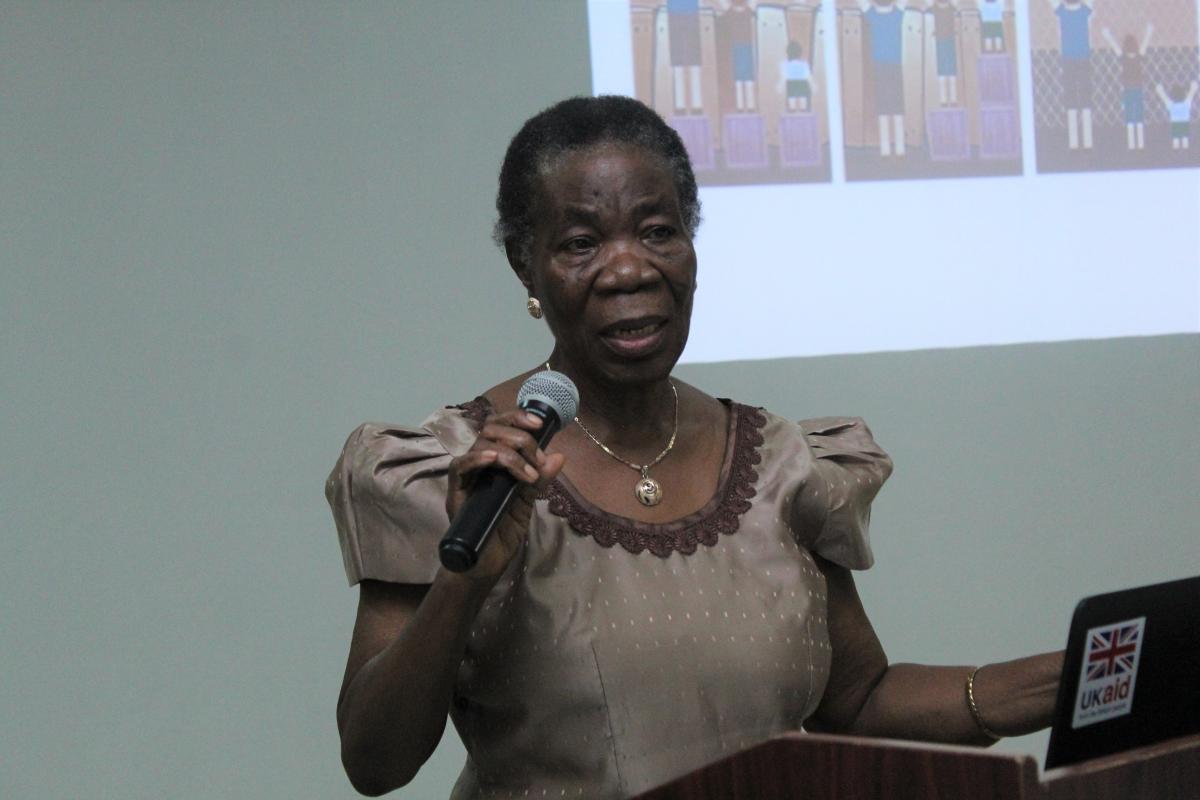
Madam Mary Ackummey
Madam Ackummey further suggested that tutors should channel their energies to conducting research, which would be a critical part of the four-year programme. Speaking about the mode of assessment for student-teachers, she suggested that, rather than putting so much concentration on summative examination, much emphasis should be laid on imparting knowledge to the students. She also indicated that, assessment should be conducted two weeks after school resumes. Again, Madam Ackummey advocated for harmonising teaching guide such as text books and other teaching materials.
The workshop also dealt with the need for tutors to undertake MPhil programmes in education to enhance their academic qualification in order to enhance their expertise to deliver the new bachelor's degree programme. In line with this, it was recommended that a transitional fund should be set up to provide support for tutors to undertake higher degrees.
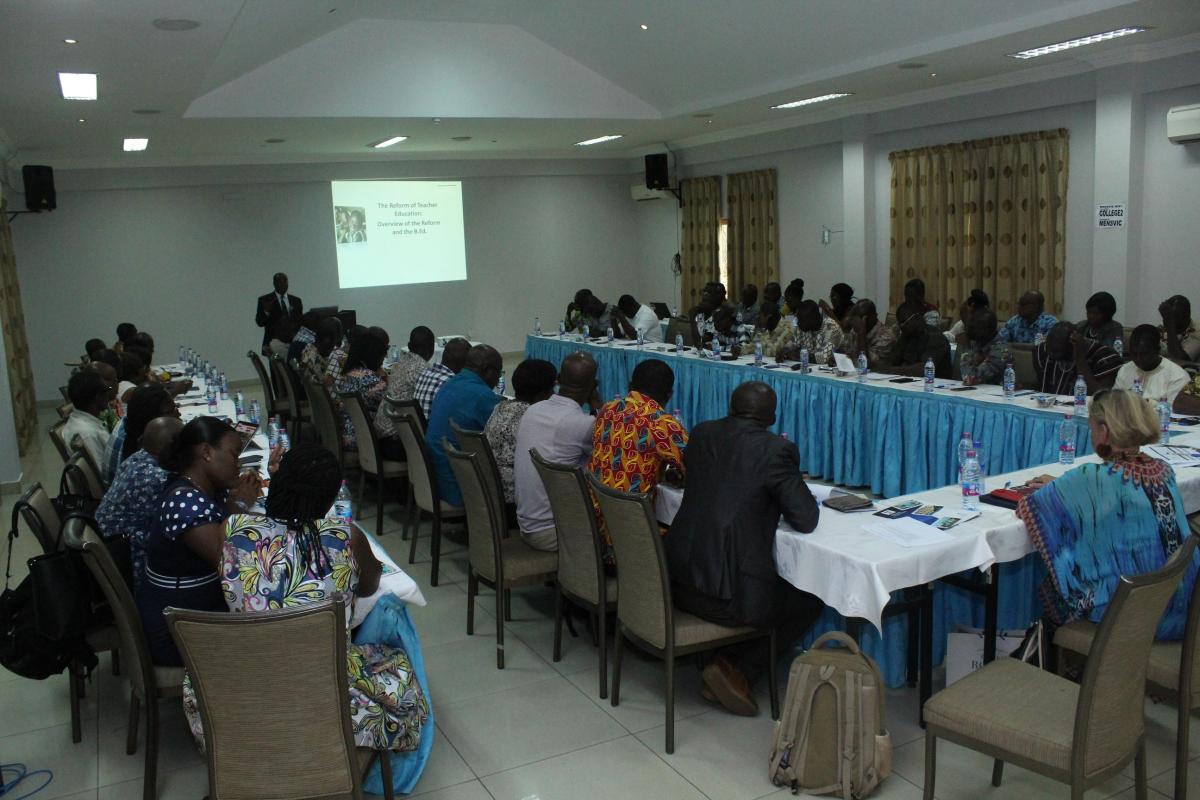
A Cross-section of Participants
To achieve the ultimate goal of sustaining the new curriculum, tutors were advised to adopt teamwork to enable the affiliate colleges to collaborate and magnify their efforts. The various institutions were also admonished to closely and frequently monitor and evaluate activities of their tutors to ensure their effectiveness.
Present at the workshop were the Subject Leads drawn from the University of Ghana who facilitated the break-out sessions for the various courses. These were; Dr. Ernest Ampadu (Mathematics), Dr. Kwaku Darko Amponsah (Science), Dr. Abraham Okrah (Literacy), Dr. Emmanuel Adjei-Boateng/Dr. Rita Yeboah (Social Studies, Technical and Vocational Education and Training) and Dr. Samuel Koffie (French). The Pedagogy session was handled by two groups led by Dr. John Sedofia (Foundations) and Dr. Paul Butakor/Dr. Doreen Ahwireng (Inclusive School-based Inquiry).
The Colleges present at the workshop were; Accra College of Education, Enchi College of Education, Evangelical Presbyterian College of Education (Amedzofe), Gbewa College of Education, Mount Mary College of Education and Peki College of Education.
To close the workshop, Professor Reginald T.A Ocansey, Head of the Department of Physical Education and Sport Studies, School of Educational Studies and Leadership congratulated all participants on their contributions and commitment in making the workshop a success.
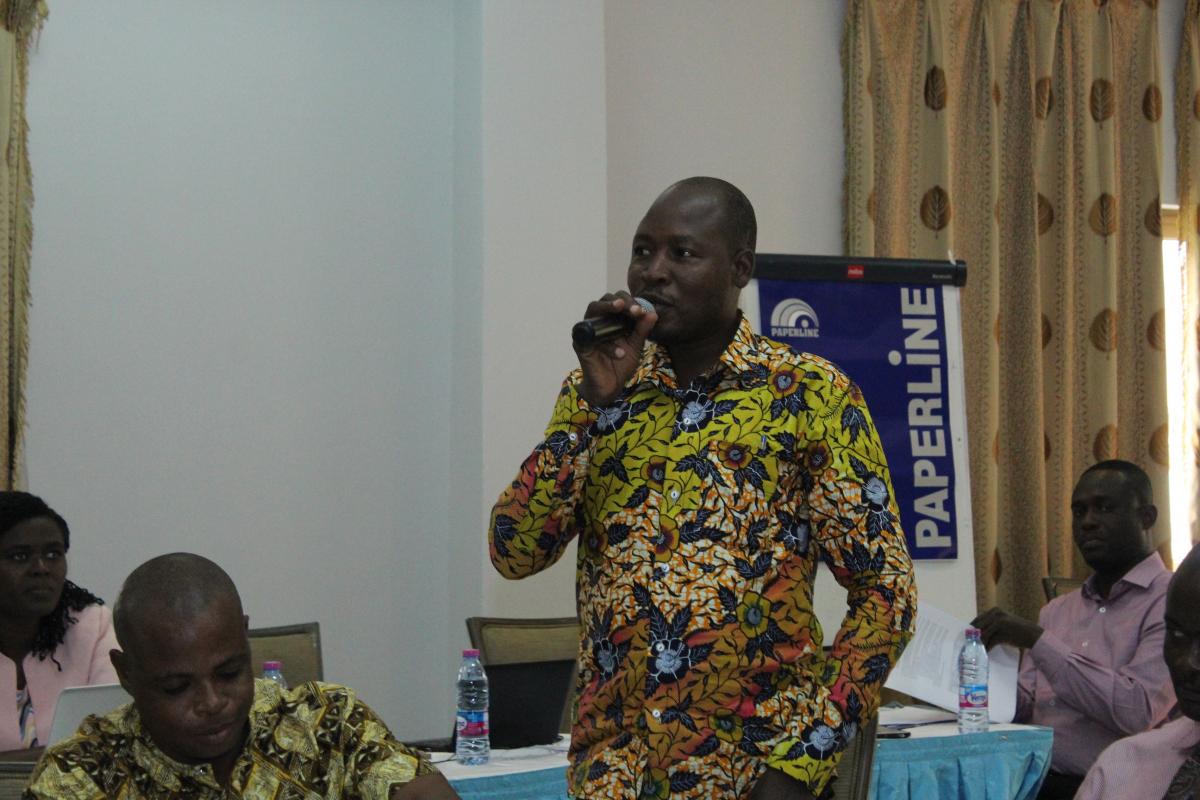
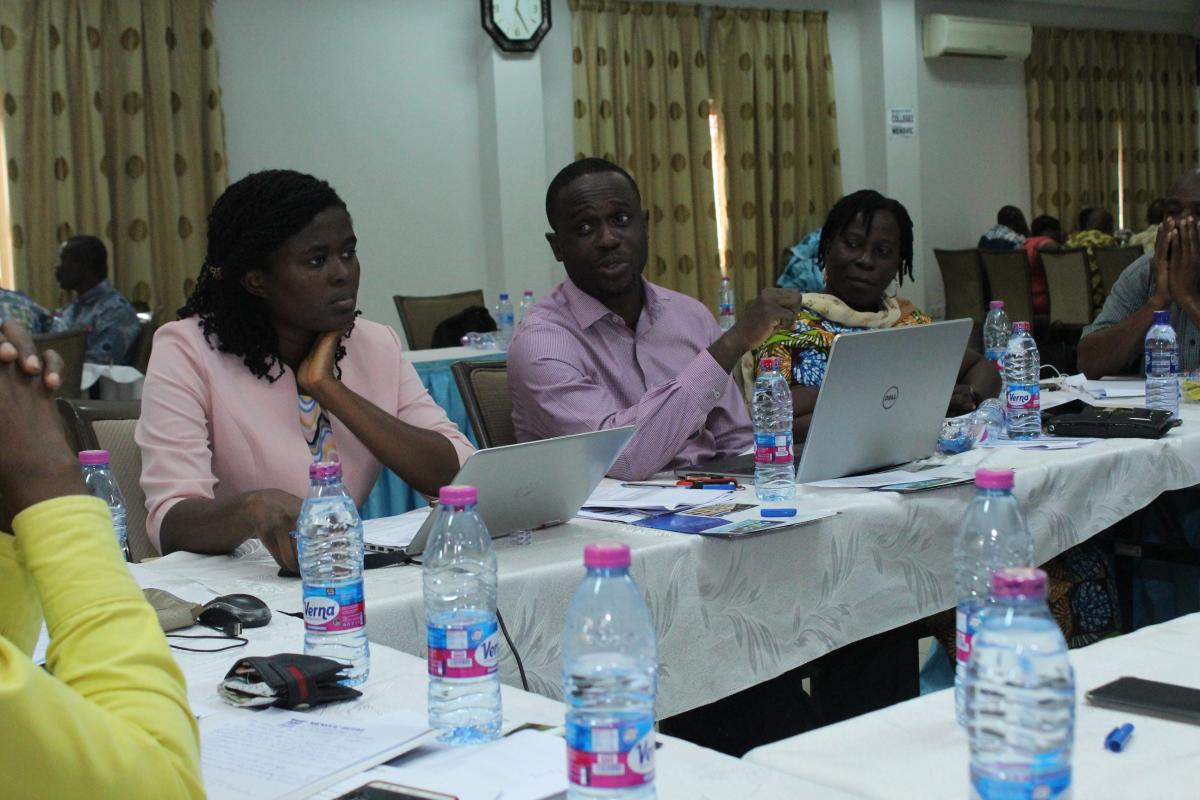
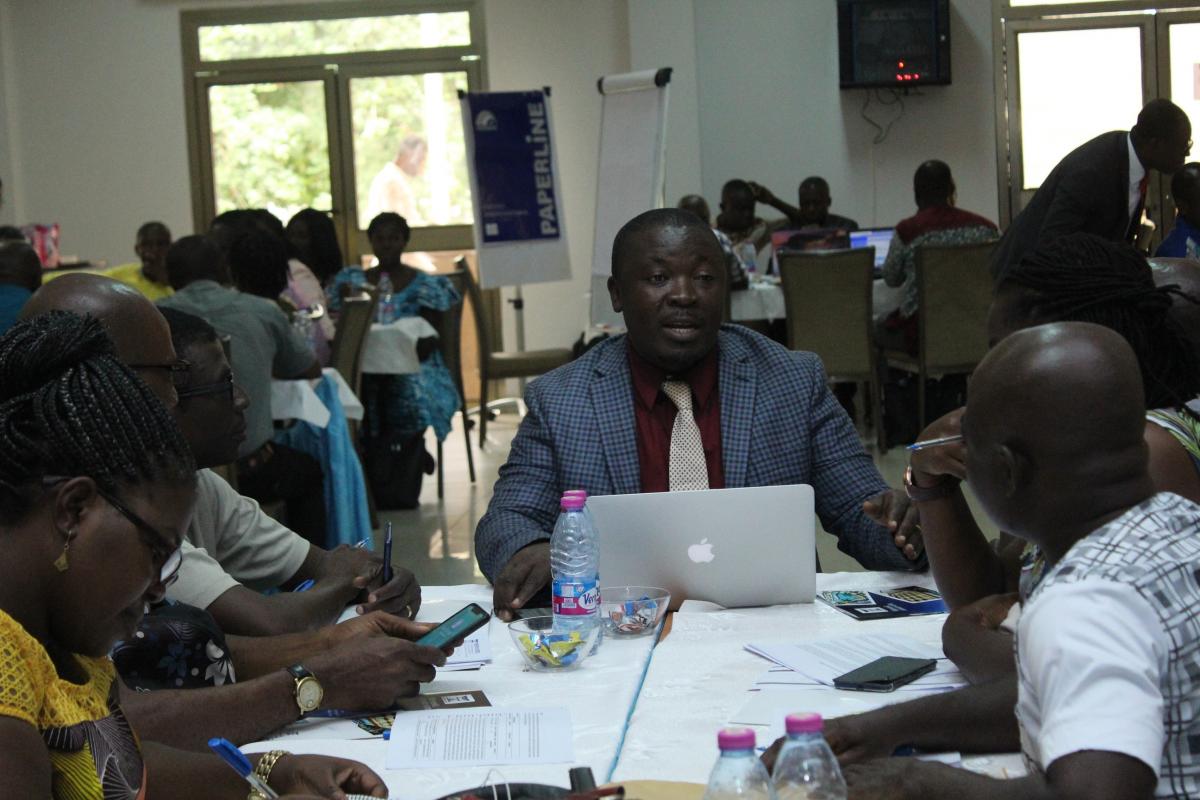
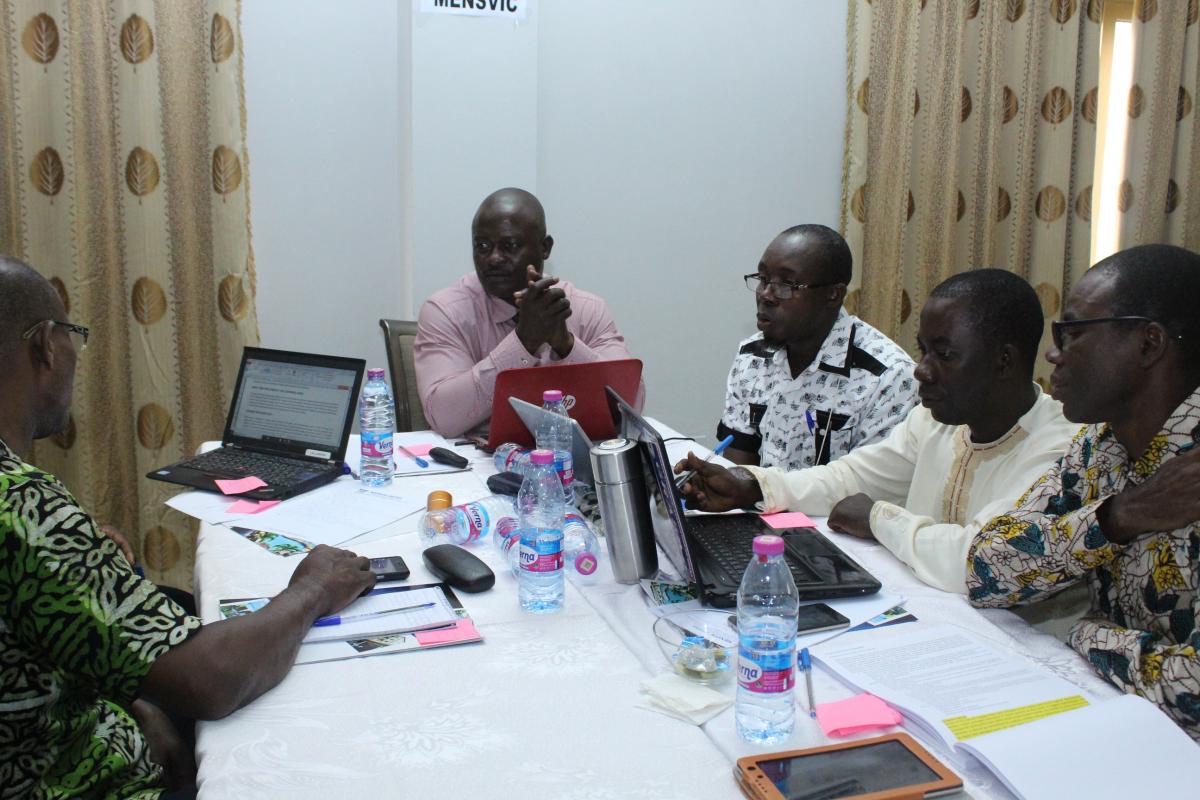
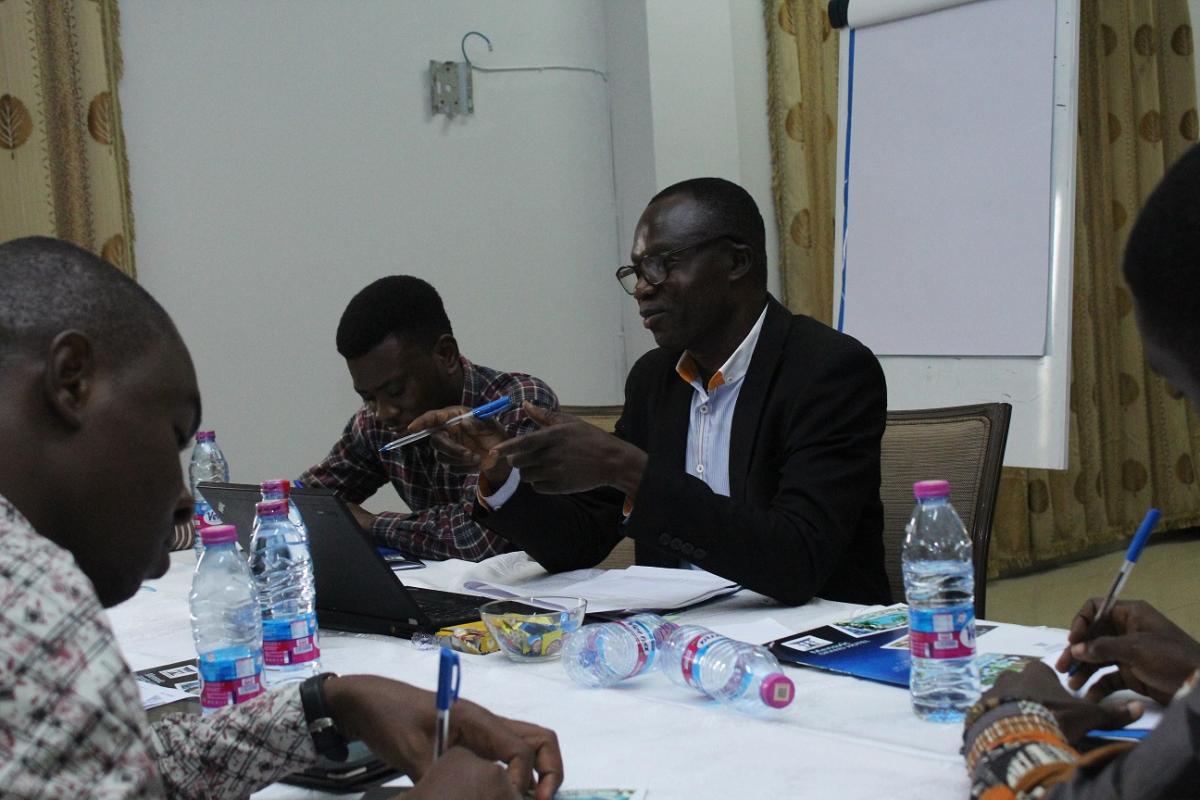
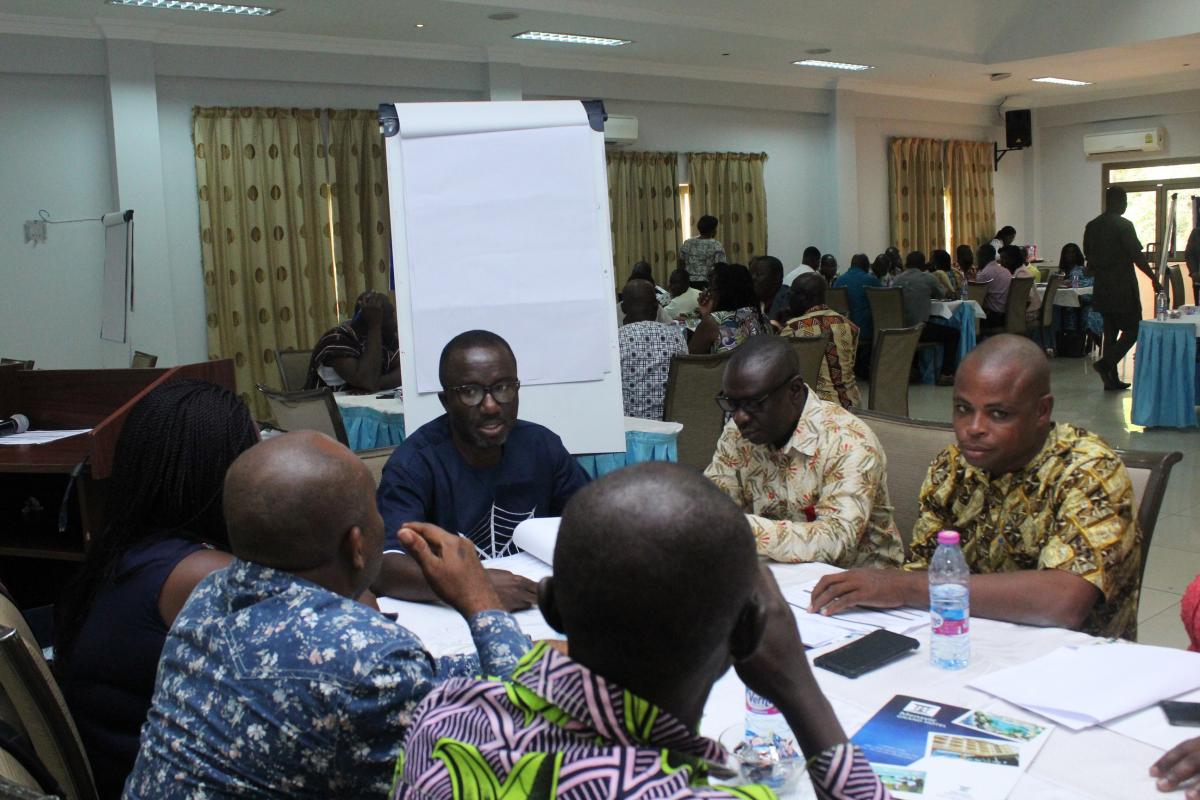
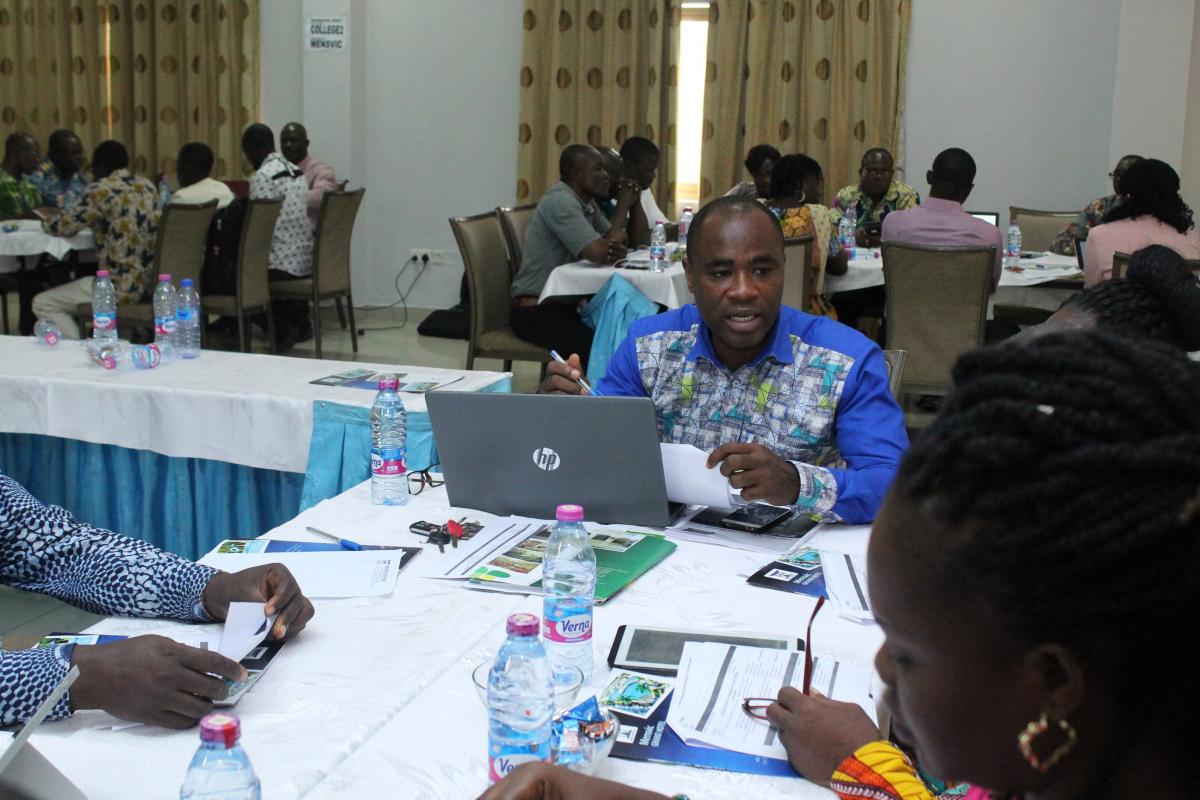
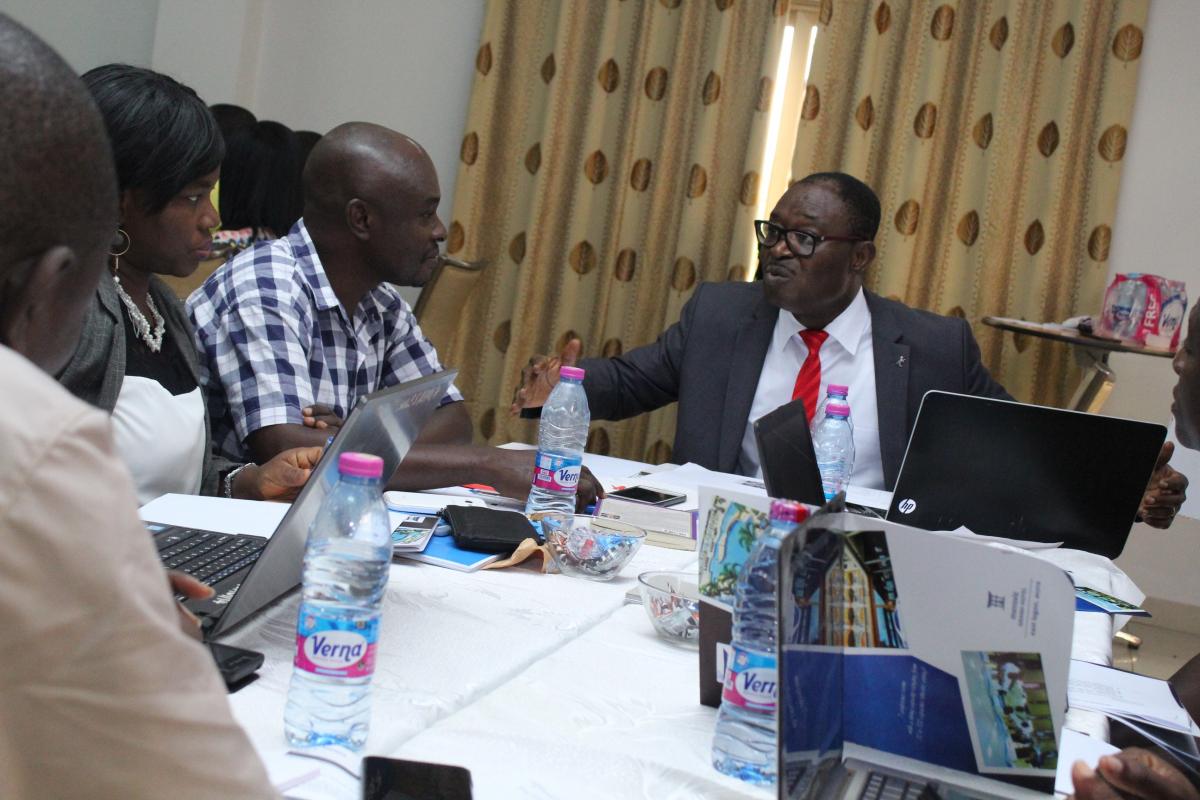
Scenes from the break-out sessions